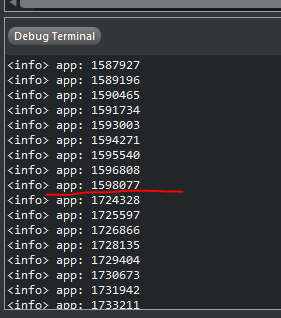Hi,
I want to configure Timer1 (32 bit ) to run up to 1 sec and then reset. I want this to be done continuously with the help of Short but without using the event handler.
void msecTimer_init(void)
{
uint32_t err_code = NRF_SUCCESS;
uint32_t time_ms = 1000;
uint32_t time_ticks = 0;
// configure Timer
nrf_drv_timer_config_t timer_cfg = {//NRF_DRV_TIMER_DEFAULT_CONFIG; // configure timer instance with default settings}
.frequency = NRF_TIMER_FREQ_16MHz,
.bit_width = NRF_TIMER_BIT_WIDTH_32,
.mode = NRF_TIMER_MODE_TIMER,
.interrupt_priority = 2,
};
// initialize timer with settings
err_code = nrf_drv_timer_init(&msecTimer, &timer_cfg, msecTimer_handler);
APP_ERROR_CHECK(err_code);
time_ticks = nrf_drv_timer_ms_to_ticks(&msecTimer, time_ms); // convert ms to ticks
nrf_drv_timer_extended_compare(&msecTimer, NRF_TIMER_CC_CHANNEL0, time_ticks, NRF_TIMER_SHORT_COMPARE0_CLEAR_MASK, false); // With this I dont enter intr handler
}
but Timer1 does not reset at 1000msec (16M ticks) and keeps increasing until it reaches 0xFF FF FF FF
What am I doing wrong here?
Are shorts only used in conjunction with event handlers?

